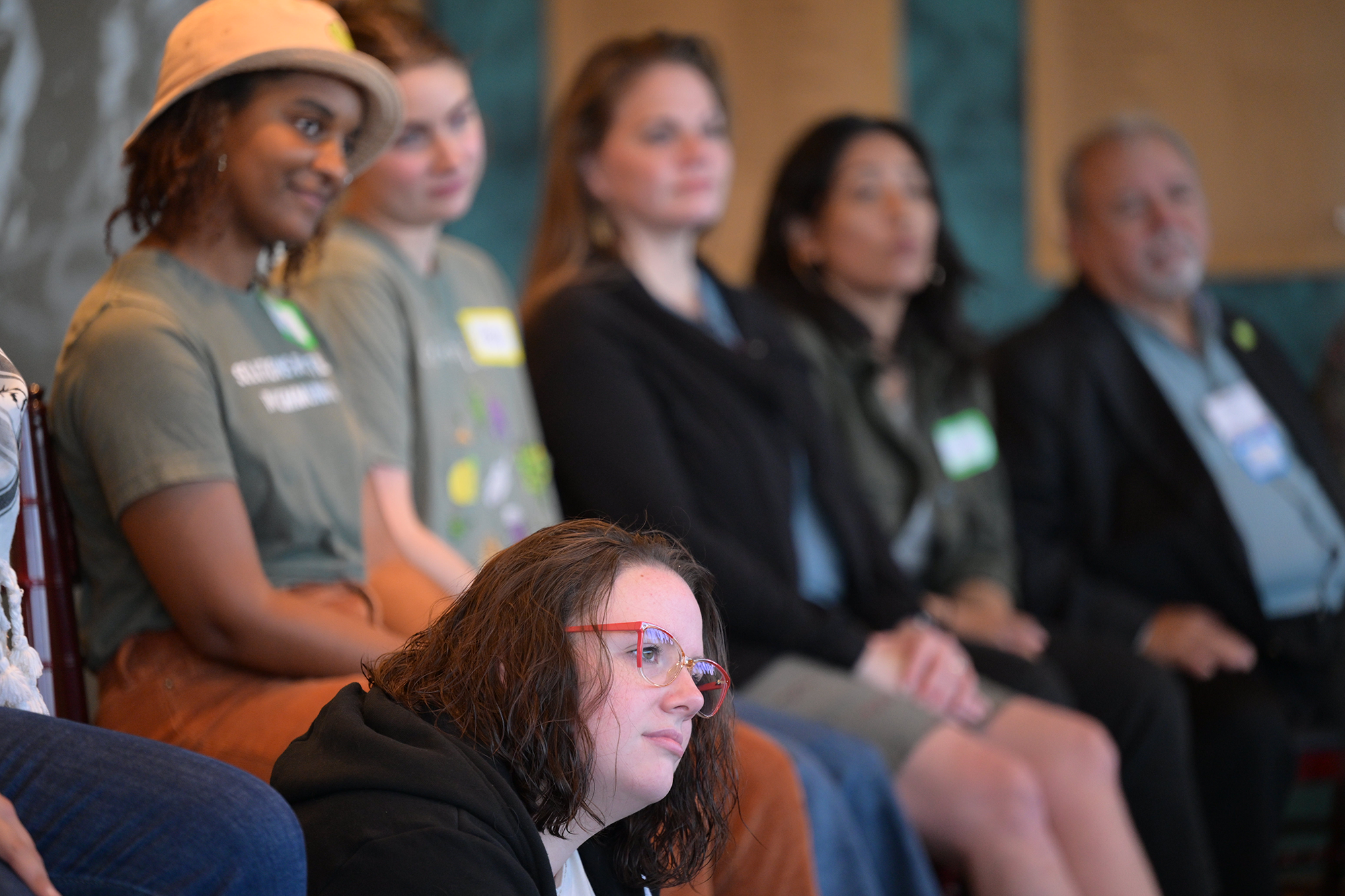NCBA CLUSA recently sat down with Dave Swanson, Partner at Dorsey and Chair of the Minneapolis-based law firm’s Cooperative Law Practice Group, a recognized national leader in the field of cooperative law. Swanson is in Miami, Florida, this week, speaking at NCBA CLUSA’s 2016 Cooperative Professionals Conference and supporting our simultaneously held 2016 National Purchasing Cooperatives Conference as an Associate Member.
Swanson believes co-ops are—now, more than ever—uniquely poised to leverage the trust consumers have in the co-op business model by fully embracing their cooperative identity. In the following interview, we asked him what characteristics drew him to the cooperative business model, how Dorsey balances the needs of long established co-ops such as Land O’ Lakes with those of the newest co-op startups and why new laws bode well for the growth of the cooperative sector. Excerpts edited for clarity.
How did you get involved with NCBA CLUSA?
Dave Swanson: It was about 20 years ago, and I was with a law firm that did a lot of work with co-ops, especially with rural electrics and agriculture. I thought that NCBA CLUSA looked like a very unique organization and I got involved because of the diversity I saw.
What co-op sectors do you typically serve?
Swanson: As I mentioned, agriculture and rural electrics are big organizations that have been around for a long, long time, so that’s a big part of our practice. But we’ve gotten involved with co-ops in many sectors beyond that, including natural food co-ops and purchasing co-ops in all different industries, along with some financial co-ops, credit unions and telephone co-ops, so we we’re covering a pretty broad industry sector. In fact, we’ve even had the chance to work with some worker co-ops these past few years.
Is there anything that differentiates your work with co-ops from your work with non-co-op clients?
Swanson: When I was a young guy, I did a lot of work with co-ops. I also did some work with investor-owned companies that were listed on stock exchanges, and I immediately saw a difference in culture that drew me to co-ops. You could argue this, but I see co-op people more focused on long-term than short-term and less about themselves and more about collectivity in the co-op business model, and that’s what drew me to it.
Our team finds the opportunity to work with both the bigger, older co-ops and the newer, smaller co-ops that are more entrepreneurial and startup-oriented. It’s great to be part of starting something new, as well part of something that’s longstanding and recognized by everyone, like Land O’ Lakes.
Thinking of your work with co-ops over the past 20+ years, what are you especially proud of, and is there anything in the pipeline that you’re looking forward to?
Swanson: Any work I’ve been involved with that made me feel proud wasn’t what I did—it was what our co-op clients did. Some of them are transactional, some of them are changes in structure, some are them just beginning. What do I see coming? I’ve always felt that there are a lot of industry trade groups that co-ops in various industry sectors utilize, and for very good reason. But there’s a common thread among all these co-ops in these industry sectors, and I know myself I have benefited tremendously from working with co-ops in various industry sectors, primarily because they have different governance and capital models, and you can draw from experience in one sector and apply it to another. There’s an opportunity for NCBA CLUSA to bring out that in the various industry sectors that co-ops operate in.
What should leadership be implementing at their cooperatives to help avoid typical issues that co-ops might run into on the legal front?
Swanson: Best practices! When you’re talking about a startup specifically, I think it’s critical to have a champion or a couple champions that have a passion and generate enthusiasm among the rest of the team. That’s been my experience starting a new co-op especially. Having a small group of core people that have passion for the idea and promote it—that’s what generates the enthusiasm to make it work. Another thing: everyone talks about how hard it is to raise capital in a co-op setting, harder than in a corporate setting because there’s not the upside potential to get really, really rich. When I first got involved with co-ops 30 some years ago, people talked about that, and people are still talking about it today, but it doesn’t have to be a negative. A lot of the things happening now with the security laws that make it easier or less expensive to raise money from a community really bodes well for the growth of co-ops.
What do you think separates Dorsey’s services from its competitors?
Swanson: We’re a pretty big firm and we have a lot of people in lots of areas, both geographically and in legal expertise, so we have a lot of resources. But we’re not so huge that we can’t get excited about doing something small. So, I think there’s a point in time where for the smaller co-ops starting up, we’re willing and excited about working with them and view that as long-term relationships that are good for both of us way beyond my career. And I’d say, if anything, [our value comes] from really learning about the industries and the businesses that the co-ops function in, becoming knowledgeable about that so that we can really partner with people in a really meaningful and effective way.
From where you sit and your general sense of the co-op universe, how important is it for cooperatives to embrace their co-op identity in order to succeed and stand-out in today’s economy?
Swanson: I would say maybe that’s something that changes a little bit with the trends and times, but certainly in the last 10 years, or since 2008 when we had this big financial crisis, co-op identity means something very different than it did before. It’s become very clear that consumers trust co-ops quite a bit, so a lot of organizations that didn’t highlight the fact they were a co-op have started to do so, no question about that. In the last 10+ years, have you seen organizations that have embraced their co-op identity experience a bump in revenue or membership growth? I see examples of it; I hear people talk about it. They realize consumers like the idea of a co-op business model because it sounds better to them than a business model that generates a lot of profit for a few owners. So, I don’t think there’s any question that people are chasing after the fact that they’re a co-op and highlighting that fact because it sounds good in the marketplace.
You sit on NCBA CLUSA’s Board of Directors and work with co-ops, so with those vantage points in mind, what do you hope that cooperatives can achieve by getting involved in the democratic process and being advocates for cooperatives on Capitol Hill?
Swanson: That’s a difficult question, especially for a lawyer! But it’s pretty clear to me that if you look at where co-ops have thrived in various industries, a big part of the reason is that federal policy has encouraged it. If you look at the agriculture co-op industry, there were several federal policies way back in the teens and 20s that helped promote that. Same thing with the rural electric co-op community, farm credit and housing. So there’s a huge importance in being involved in grassroots efforts to influence federal and state policy. It’s a key thing that’s helped co-ops thrive. I’m very excited about the Congressional Cooperative Business Caucus and InterAgency Working Group on Cooperative Development. In the 10 years I’ve been on the board and 20 years I’ve worked with NCBA CLUSA, the Caucus is one of the most significant things I’ve seen happen. It involved huge strides to get started and has great potential.


